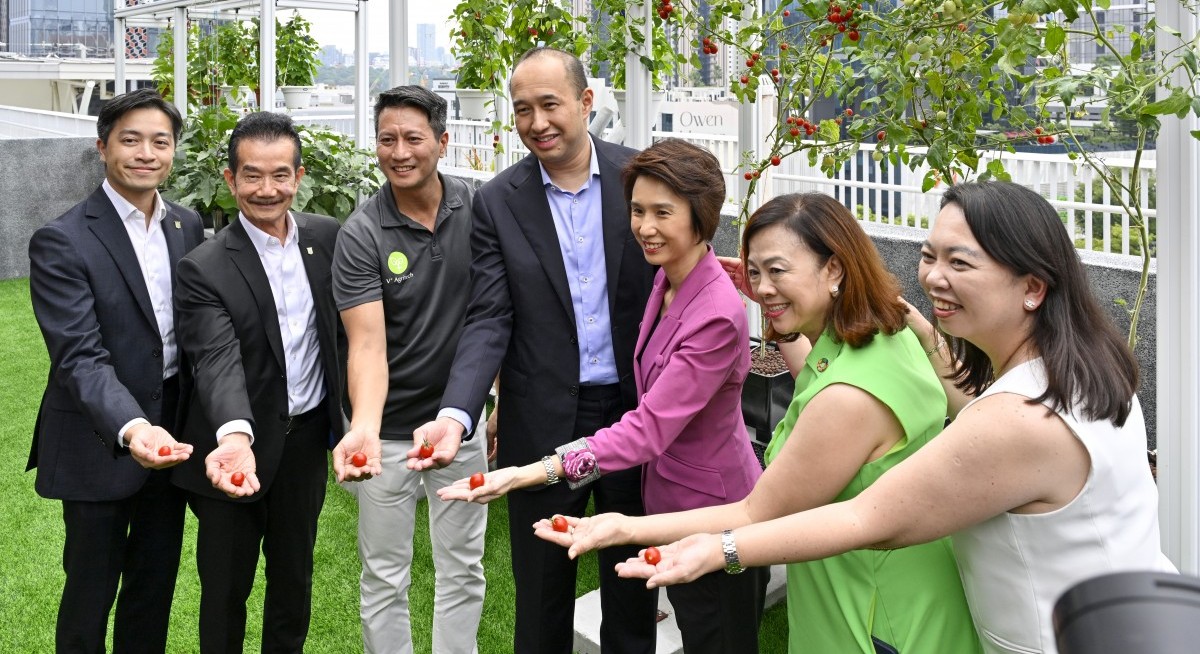The bank will provide preferential rates for the SME graduates with improved sustainability reporting.
Through the programme, GGC has partnered with a panel of carbon accounting IT solution providers, including ESGTech and ESGpedia, to measure and report emissions from the participating SME suppliers.
In addition, the Agency for Science, Technology and Research (A*Star) AdViSe platform for Life Cycle Assessment (LCA) and Life Cycle Costing (LCC) will streamline data collection, analysis and reporting to measure the environmental impact and cost efficiency of products and services.
According to CDL, participating SMEs can gain knowledge and credibility for the data they are able to collect through the programme, as the data collection framework is aligned with the requirements of sustainability reporting framework-setters CDP (formerly the Carbon Disclosure Project) and the Science Based Targets initiative (SBTi).
See also: Banks backing green steel fund ‘false solutions’ — report
Since the launch of the programme in May 2024, CDL has engaged with some 200 SMEs. CDL is still targeting for 100 SME suppliers to graduate from the programme by the end of 2026.
Speaking at the Singapore Sustainability Academy on Oct 7, Low Yen Ling, Senior Minister of State for Trade and Industry, and Culture, Community and Youth, says the next batch of SME suppliers could complete the programme in under eight months, less than half the duration of the inaugural batch.
This second phase of the programme is an abridged, 14-week version titled the CDL Queen Bee Compact: Accelerating SME Readiness for a Low-Carbon Future.
The condensed version of the original programme is tailored to SMEs that require a short learning journey, and aims to kickstart their sustainability leadership and equip them with skills like developing climate-related reports to meet client procurement requirements.
Not all SMEs under the programme began as CDL’s suppliers. The programme is targeted at both current and potential CDL suppliers. Of the 42 SME graduates, two were not CDL suppliers when they initially joined the programme.
In addition to being an existing or potential supplier to CDL, an SME looking to qualify for the programme must be a business entity registered and operating in Singapore. It must also have a minimum of 30% local ownership by Singapore citizens or Permanent Residents (PRs).
In Singapore, SMEs form over 99% of local enterprises and contribute over 40% of the nation’s GDP. SMEs here also employ 70% of Singapore’s workforce.
CDL group CEO Sherman Kwek says SMEs play a critical role in helping Singapore achieve its net-zero goals. “With large corporates striving to meet stringent carbon reporting requirements, there is a stronger business case for SMEs to embrace carbon reduction. In today’s highly competitive economy, SMEs who show capacity for carbon reporting will stand out as preferred suppliers.”
To stay ahead of Singapore and the region’s corporate and economic trends, click here for Latest Section
Speaking at a separate event the following day, CDL chief sustainability officer Esther An says the SME graduates have “very creative” solutions.
Speaking on an Oct 8 panel alongside Eric Lim, her counterpart from United Overseas Bank, An says she hopes banks can help “kickstart” sustainable financing among smaller firms. “Some of the SMEs — and I’m relating their wishes — they always feel that the banks are offering very good lending rates to big players but not the small players.”
An adds: “Maybe that is something you can help to accelerate, [so that] even the smaller players can enjoy better rates [on their loans]. It need not be hundreds of millions, but help them to kickstart [their journey]. They may become a unicorn one day; they may become your biggest borrowers.”
CDL also launched the CDL MicroFarm at the Singapore Sustainability Academy, designed in collaboration with local agritech SME and programme graduate V-Plus Agritech.
With 12 vertical towers, the system supports up to 576 plants at any one time. This setup can produce approximately 20 to 35 kgs of leafy greens per month, translating to an annual yield of 240 to 420 kgs, depending on the specific varieties grown. Additionally, the farm yields five to 10 kgs of fruiting vegetables monthly, depending on the seasonal mix.
CDL’s facilities management subsidiary CBM contributed facilities management knowledge, including electrical works, irrigation and flooring systems.
Plants harvested from the MicroFarm will be distributed to staff at the Singapore Sustainability Academy.
Photos: Albert Chua/The Edge Singapore




